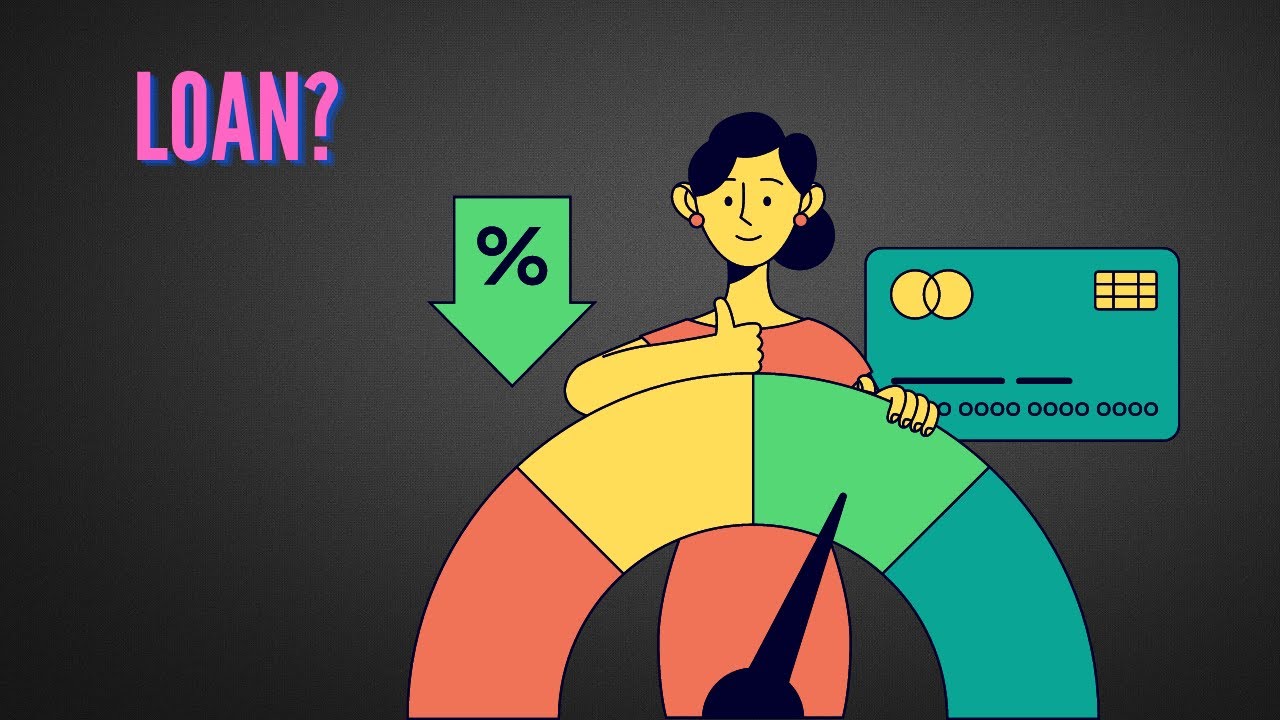What is a Credit Score and How is it Calculated?
Summary
TLDRAparna Shah from Equifax explains credit scores, which range from 300 to 850 and reflect the likelihood of timely bill payments. A higher score, indicating a solid credit history, can lead to better credit terms such as lower interest rates. Factors like payment history, credit utilization, account types, credit history length, and recent inquiries determine the score. Understanding one's credit score is crucial for financial health and future planning, with resources available at equifax.com/learn.
Takeaways
- 📊 A credit score is a numerical representation of your likelihood to pay bills on time, ranging from 300 to 850.
- 🏦 Lenders, including banks and credit card issuers, use credit scores to decide whether to extend credit and on what terms.
- 💰 A higher credit score generally indicates a history of timely bill payments and responsible credit management over several years.
- 🔢 Credit scores are categorized into different ranges, with 670-739 typically considered 'good', though this can vary.
- 🏠 A good credit score can increase your chances of approval for credit applications but does not guarantee it or a specific interest rate.
- 🤔 There are multiple credit score models used by lenders and industries, which can result in variations in scores and credit decisions.
- 📝 The most significant factors in calculating a credit score are payment history, credit utilization, types of credit, credit history length, and recent inquiries.
- 💡 A high credit score can lead to better credit terms, such as lower payments or interest rates.
- 🌟 Understanding your credit score is crucial for maintaining financial health and planning for the future.
- 📚 Additional resources for learning about credit scores are available at equifax.com/learn.
- 🙌 The speaker, Aparna Shah, leads the direct to Consumer business at Equifax and provides this valuable insight into credit scores.
Q & A
What is the purpose of a credit score?
-A credit score is designed to represent the likelihood that an individual will pay their bills on time. It is used by lenders to determine if they will extend credit and the terms they will offer.
What is the typical range for credit scores?
-Credit scores typically range from 300 to 850.
How does a credit score affect loan applications?
-A higher credit score indicates a history of timely bill payments and can increase the chances of loan approval and better terms such as lower interest rates.
What is considered a 'good' credit score according to the script?
-A score between 670 and 739 is generally considered good.
Does a good credit score guarantee loan approval or a specific interest rate?
-No, a good credit score does not guarantee approval or a specific interest rate, but it helps increase the chances of getting better terms.
What are the different types of credit scores and models used by lenders?
-There are various types of credit scores and models used by lenders and industries, which can lead to variations in specific credit scores and credit decisions.
What are the most important factors in calculating a credit score?
-The most important factors include payment history, credit utilization, types of credit accounts, length of credit history, and recent credit inquiries.
What is credit utilization and why is it important?
-Credit utilization is the ratio of the amount of credit you've used compared to what's available. It is important because it affects your credit score and indicates your ability to manage debt.
How long does it typically take to build a high credit score?
-A high credit score typically indicates a credit history built over several years with a record of timely bill payments.
Why is understanding your credit score important for financial health?
-Understanding your credit score is important for financial health because it can determine the terms of credit you receive and is a key part of building a strong financial future.
Where can one find additional resources to learn more about credit scores?
-Additional resources can be found at equifax.com/learn.
Outlines

This section is available to paid users only. Please upgrade to access this part.
Upgrade NowMindmap

This section is available to paid users only. Please upgrade to access this part.
Upgrade NowKeywords

This section is available to paid users only. Please upgrade to access this part.
Upgrade NowHighlights

This section is available to paid users only. Please upgrade to access this part.
Upgrade NowTranscripts

This section is available to paid users only. Please upgrade to access this part.
Upgrade NowBrowse More Related Video

6 Credit Card MISTAKES To Avoid As A Beginner

TANGGAL CETAK, BILLING STATEMENT DAN JATUH TEMPO KARTU KREDIT TOKOPEDIACARD, UNTUK PEMULA.

3.1. Credit Scoring | DATA SCIENCE PROJECT

What is a Credit Score? A Credit Education for Filipinos by CIBI Information Inc.

Credit Score Explained

How to Pay Off A Credit Card with 0 Cash Flow!
5.0 / 5 (0 votes)